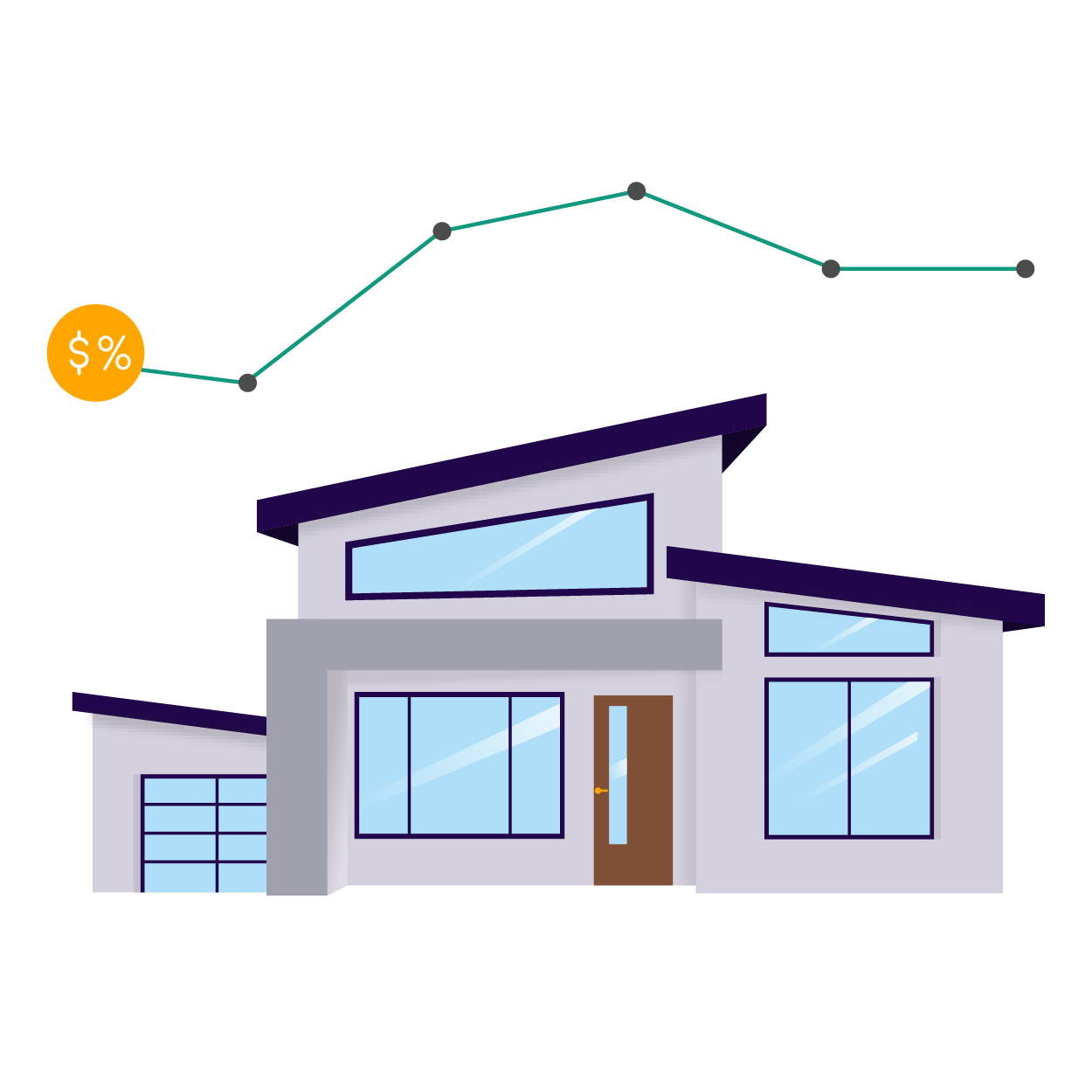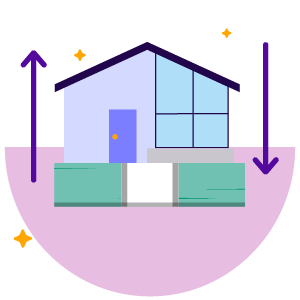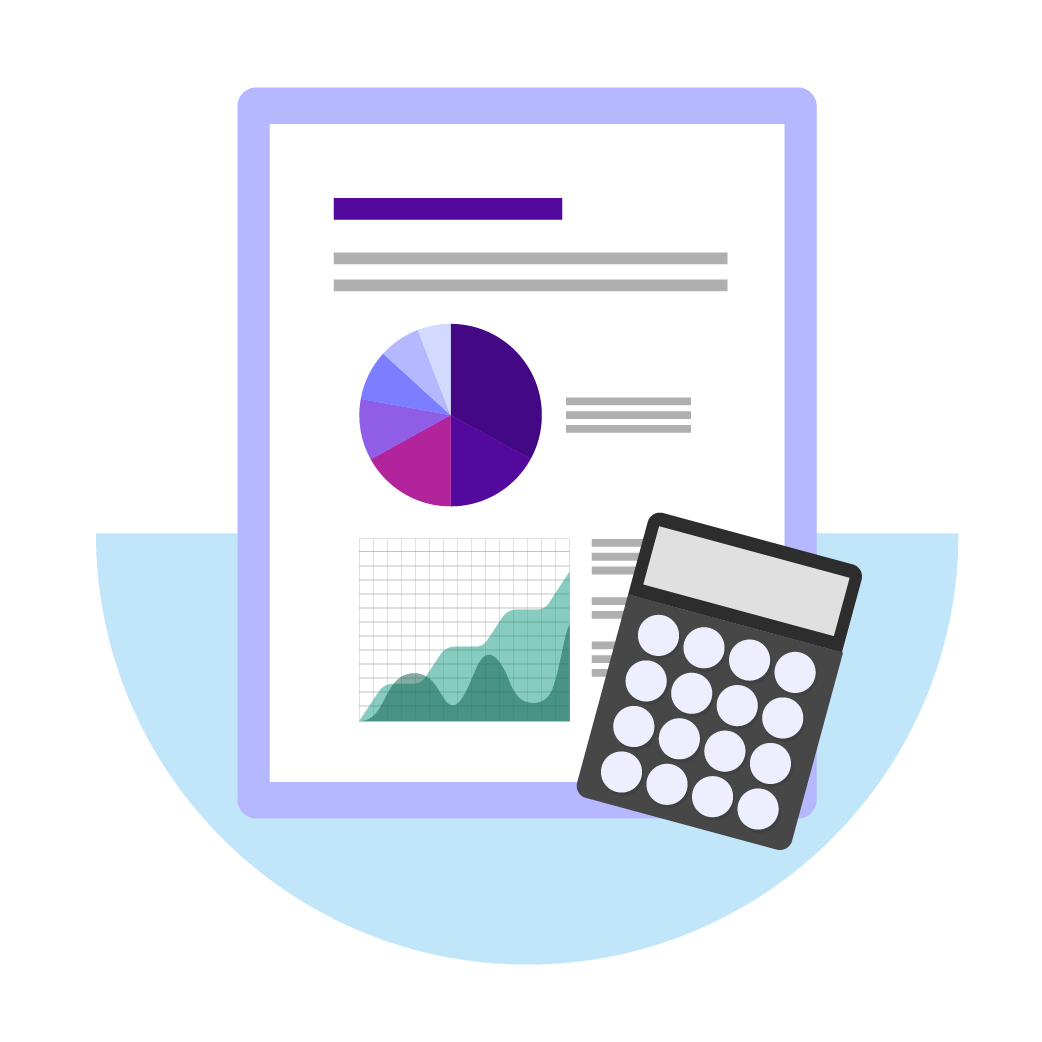February 6, 2025 | by Brian Truong

Navigating Mortgage Payment Changes
September 11, 2024
By Brian Truong
Why did your mortgage payment amount just change? Mortgages are something that most people see as a static cost, something you pay steadily every month until the house 100% belongs to you. However, mortgages can change, and many are designed to do so.
Even fixed-rate mortgage payments may change after the first year of homeownership due to certain factors. It's important to understand how and why your mortgage payments might change to make the best financial plans for the future.
This guide explores the factors that influence mortgage payment adjustments. We help you prepare for potential changes and manage your finances effectively.
 Understanding Fixed-Rate vs. Adjustable-Rate Mortgages
Understanding Fixed-Rate vs. Adjustable-Rate Mortgages
When you take out a mortgage, there are two types to choose from: Fixed-rate vs adjustable rate. This is one of the most important decisions in your financial life because it influences the stability of your mortgage payments.
A fixed-rate mortgage locks in the interest rate you secured when negotiating the loan. That is why many choose their buying time carefully. The interest rate won't change for the entire duration of your mortgage unless you refinance at a new rate intentionally. Fixed-rate mortgages are the most common, and the payments are the most stable.
Adjustable-rate mortgages allow the interest rate to change with the market over time. The rate may be fixed for a short time (ex, the first year to 5 years), but can change based on a specific index. A new rate is calculated at the reset rate, and as a result, your mortgage payments may rise or fall.
 Escrow Adjustments
Escrow Adjustments
During your first year of homeownership, the escrow payment (your up-front money) goes toward your property taxes and homeowners' insurance costs. But after the first year, you'll need to include these expenses in your budget. If your mortgage payments are set to include your property tax, for example, this can lead to adjustments in your monthly mortgage rate in addition to now paying your insurance premiums.
 Interest Rate Changes in ARMs
Interest Rate Changes in ARMs
Adjustable-rate mortgages (ARMs) can change the interest rate after an initial fixed period of 1 year to 5 years. After that point, the interest rate can change based on the adjustment rate, which can be 5 months, 1 year, 2 years, or 3 years.
ARMs often have a lower initial interest rate, which can change based on a specific economic index or national interest rate change. This can allow your mortgage payments to rise or fall over time, depending on the index. Homeowners should plan ahead in case interest rates rise over time. Maintain awareness of the rate adjustment times when your finances might change.
 Homeowners Insurance and Property Tax Increases
Homeowners Insurance and Property Tax Increases
In addition to your mortgage, you should also plan for changes to your homeowner's insurance and property tax costs. Insurance prices can change based on the market, your policy renewal schedule, and any claims you may need to make over time. Never hesitate to compare rates in case a better homeowner's insurance deal is available.
Property taxes can change based on local laws and incidents that cause rep-appraisal of your home. Anticipate changes to these expenses and plan ahead for potential increases in cost.
 Private Mortgage Insurance (PMI) Adjustments
Private Mortgage Insurance (PMI) Adjustments
Private mortgage insurance (PMI) is required when your equity is lower than 20%. PMI is a type of insurance that pays the bank if you default on the loan, and it adds to your monthly mortgage-related costs. If your downpayment is 20% or above, you won't be required to take out a PMI policy. You can also get rid of your PMI when your equity reaches 20%. This will lower your overall mortgage expenses and may affect your monthly payments.
 Loan Recasting and Refinancing Options
Loan Recasting and Refinancing Options
You can intentionally improve your mortgage payments in two ways: loan recasting and refinancing.
Loan recasting is when you pay a lump sum toward your mortgage to reduce your remaining monthly payments. Your lender will then reamortize the loan for better terms. You keep the same interest rate and duration, but your monthly payments can be reduced because you are reaching a smaller number in that duration.
Loan refinancing is when you take out a new mortgage at a smaller amount and better terms. You pay off the original mortgage with the loan amount and switch to the new loan. This is a common way to secure a lower interest rate, change the duration, and change loan terms to achieve a more favorable monthly payment.
 Staying Proactive with Financial Planning
Staying Proactive with Financial Planning
Your mortgage isn't as static as you might think. Mortgage payments can change based on your mortgage type, property taxes and insurance, and specific changes you make to the loan plan. It's important to regularly review your finances and stay informed about potential changes to your mortgage payments.
Be prepared for anything that might raise your payments, like an adjustable-rate mortgage or related costs, such as rising insurance fees. At the same time, stay apprised of opportunities to lower your mortgage payments by eliminating PMI or recasting/refinancing the loan.
Consider building an emergency fund and effective budget strategies to remain prepared for mortgage payment adjustments.
- Add to your emergency savings every month
- Keep a margin in your budget for rate increases
- Track when property taxes might increase
- If you have an ARM, track the index to know if it will rise or fall
- Watch out for more favorable homeowners insurance policies
- Refinance if considerably better interest rates or terms become available
- Annually review and rework your budget
Mastering Your Mortgage Payments
 Mortgage payments are not always perfectly stable. Knowing why and how mortgage rates might change is the first step to mastering your long-term finances. Prepare yourself for potential changes in your mortgage payments, especially in the second year of homeownership, when initial terms are the most likely to change.
Mortgage payments are not always perfectly stable. Knowing why and how mortgage rates might change is the first step to mastering your long-term finances. Prepare yourself for potential changes in your mortgage payments, especially in the second year of homeownership, when initial terms are the most likely to change.
The greatest success comes from staying proactive in managing your finances. You may benefit significantly from seeking professional advice and exploring options like recasting or refinancing to improve your mortgage terms and maintain financial stability.
Related Topics
Brian Truong was born in Canada (cool, eh?) and grew up in Sugar Land, Texas. Brian has over 12 years of SEO and marketing experience in a wide array of industries, including finance and real estate. When he’s not flexing his SEO and web development superpowers, he enjoys video games, anime, horror movies, and spending time with his cat, Chi.
Related articles you might like
December 23, 2024 | by Brian Truong
Budgeting 101: Comparing Fixed and Variable Costs
December 12, 2024 | by Brian Truong






